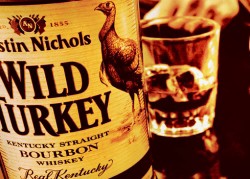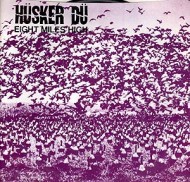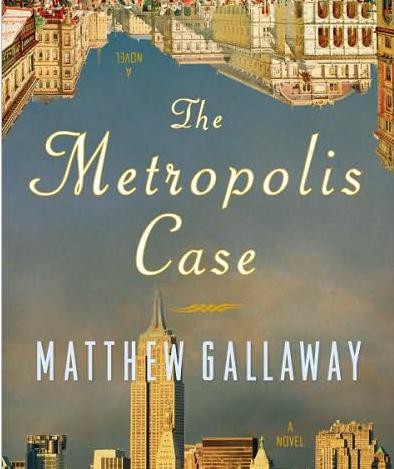Goddamit, Do I Have To Start Working Out?

In a finding wildly at odds with my own experience, research shows that the more people drink the more they tend to exercise.
The study, based on replies from an annual telephone survey of hundreds of thousands of American adults about their health habits, found that “drinking is associated with a 10.1 percentage point increase in the probability of exercising vigorously,” the authors write. More specifically, “heavy drinkers exercise about 10 more minutes per week than current moderate drinkers and about 20 more minutes per week than current abstainers.” Meanwhile, the authors continue, “an extra episode of binge drinking increases the number of minutes of total and vigorous physical activity per week for both women and men.”
Now, let’s be honest: You call a bunch of drunks and ask them if they work out, they’re gonna say, “Yeah, sure” as they cradle the phone between their head and shoulder while furiously trying to take the top off of the fucking aspirin bottle. But let’s suppose for the moment that the study holds true. There are even more disturbing revelations.
Finally, it may be that exercising allows you to become a little less stupid as a result of binge drinking. Binge drinking does, as you may have heard, kill brain cells. Repeated animal studies have shown that even one episode of serious binge drinking leads to a slaughter of brain cells, particularly in the dentate gyrus, a portion of the brain associated with memory and emotion. But a study by Dr. Leasure and her colleagues published last year showed that when rats exercised for two weeks before being allowed to binge drink, they lost fewer cells due to cell death in their dentate gyrus.
This registers with me on a deeply personal level: I have of late, but wherefore I know not, been getting increasingly less proficient in the basic human endeavors one learns to negotiate as a child. When I shower, I somehow get shampoo in my eyes, which hasn’t happened since I was seven. It burns! I can no longer crack an egg — the first culinary skill my mother taught me as a little boy and something I remain stupidly proud of in that way your earliest achievements seem to stick with you longest — without several pieces of shell ending up in the bowl. I have put my boxers on backwards three times in the last week alone, which, because I am lazy and hate to take my shoes off once they’re on, has resulted in my standing in front of the toilet with my pants around my ankles like some common masturbator just to perform the simple act of urination. Um, okay, probably telling you too much here. Anyway, my point is this: I am clearly regressing. In six months I will be accidentally biting the fork when I eat and dribbling liquid down the front of my shirt when I take a sip from a glass. Because there is no history of dementia in my family, I can only assume this is a result of my deep love affair with drink. Please, please, please, Science, do not tell me I need to start exercising to prevent any further collapse. It would be the absolute final indignity.
Maybe Bird Scientists Are Killing The Birds

“One key to the insights here is a small, dark room with two 1,000-frames-per-second cameras, developed by the military to study ballistics, which slow high-speed action in high resolution. Wild birds in flight are misted with a fog of vaporized olive oil, which is illuminated by a green strobing laser operating in tandem with the camera. The system allows researchers to track the movement of misty air around the birds, showing where they are generating lift and drag. It led to the discovery here of a vortex on the leading edge of bird wings, which adds to a bird’s lift. The birds, ranging from delicate diamond doves to burly ravens, have crystal sensors surgically implanted in their pectorals and elsewhere that measure muscle contractions as they fly… Birds are also put in wind tunnels and photographed at high speed so researchers can see in detail how they perform at 20 miles per hour or more. They are also fitted with tiny masks that measure metabolism.”
— I don’t think we have to look much further into what’s killing birds in Arkansas and Louisiana or, most recently, Sweden (Jeez!). Seems like the scientists at the University of Montana Flight Laboratory probably have something to do with it.
You're Being Gamed

Gabe Zichermann, the author of Game-Based Marketing and a startup advisor and one of those incredibly likeable connector-type people, likes to talk about what motivates people to do the sort of things that make people money. The best incentives aren’t often cash, he thinks, unless the money is really good. His acronym for incentives is SAPS, which stands for status, access, power and stuff. Those are in order, by the way, of things that people say they like best. This is an idea that most every businessperson likes, for obvious reasons, including that giving away “status” and “power” can have no ongoing cost.
“Now we care about what motivates the consumer and we think we can shape it,” Zichermann told me recently, while I was talking to him for a story on startups. “We used to only care about consumer attributes. But now buying is just one of the things that we want consumers to do — we want them to share and flirt and poke and trade. We have all these new verbs. In the cold hard calculus, we ultimately want them to produce ‘buy,’ but it’s the journey rather than the destination.”
Zichermann gave his first lecture on gamification in 2006 in Europe, and out of 160 attendees, only three people came up to talk to him after. That was then; in a couple of weeks from now, his baby, Gamification Summit 2011, will take place in San Francisco.
Because it’s taking place in San Francisco, and because the business and startup worlds are still somewhat coast-myopic (“the Bay Area is the beating heart of the world’s technology business, by far and away, not even close,” Zichermann said) much of the participation is from straight tech companies, and with people from Zynga and Bing and Google and a number of game designers — though there’s a bit of media, in the form of Playboy’s digital person and at least one TV person.
What this indicates, looking at how ideas have trickled down over the last ten years (and trickled east as well), is that we’re just at the beginning of gamification on the web and in the real. It’s also relevant that the conference’s keynote talk is on the subject: “Why Engagement is the Power Metric of the Decade.” The shiny graphs of Mint.com; the little affirming hearts of Tumblr; the follower count on Twitter: the integration of reward and status and play into transactions is already embedded. They’re there because what games — and emotional cash and prizes — do is that they stretch your engagement time. Games (both covert and overt) are, for instance, why Facebook has such an enormous on-site time per user.
What industry doesn’t benefit from gamification? Let us not let this, from a description of a workshop at the conference, pass without notice: “Rapper Jay-Z’s recently-released memoir ‘Decoded’ turns reading back into a game for adults with a new campaign sponsored by Bing and headed by New York ad agency Droga5.” When I was young, the library gave out awards to the kids who’d read the most books (which, yes, they were giving me status!); now there’s this, notably for adults. This sort of campaign is the tip of the iceberg of activities at the always brilliant and astoundingly evil Droga5.
Not just book publishing but also the news business is benefitting from becoming a game. Khoi Vinh, the much-heralded former designer director of the New York Times website, was talking about the ever-growing importance of shareability and community at newspaper websites years ago. He was saying, early in his tenure, that the future New York Times front page was the one that your friends made for you. Not only are you more likely to listen to your friends, you gain status and power by being an influential recommender. Or, elsewhere, by being a star commenter, or giving and getting “gold creddits” on Reddit.
Advertising is a game — as the lucky recent winners of a New York City scavenger hunt can tell you, when they go to pick up their new Ford Fiesta.
Food is a game. That’s why your beverages are becoming snacks and your snacks are becoming beverages. Apparently, drinks are just a game you play with your mouth!
Environmental stewardship is a game; hence Recycle Bank, “the premier green rewards program that motivates people to take environmental actions.” Charity is a game: when Zynga started donating money to Haiti through its monstrous Farmville (which, hmm), people ran to jump in. Kickstarter, on the other hand, is the friendly, less-evil hitching of our gaming impulses to do-gooding.
Going beyond the goals of keeping people on-site and involved and busy at play, there can be more nefarious applications of urges to loyalty and compulsive activity. Work itself may be, in some very limited circles, already becoming a game. (The implications for this are actually the most harrowing, I think; although at its least frightening, gamification in the workplace has all the coolness of being named as TGI Friday’s top up-seller — you get a free apron, and you get a free apron!)
But down the road, when you’re more of a consumer than a worker, what happens? “Healthcare, government, transportation, education,” Zichermann said: “it’s influencing almost every large market. We’re witnesing the birth of what I think is a completely new chapter in psychology and marketing.” Guess we’ll probably find out soon, because yes, CNN agrees: “Industries like health care, media and retail are already toying with game dynamics — awarding active employees or customers with virtual badges, for example.” See also: news organizations that offered cash bonuses as a game for their employees for getting the most Twitter followers and the like. If only they’d offered status or power, perhaps it would have worked out better. Although, we should never forget that status is tied up in the real-world value of money. As we’ll see in the future, when you have an underpaid employee population, making people compete for cash rewards can be plenty effective. But maybe you’ll want to play, and maybe you won’t.
Americans As Misinformed About Their Diets As Everything Else
“Americans tend to give themselves high marks for healthy eating, but when we asked how many sugary drinks, fatty foods, and fruits and veggies they consumed, we found that their definition of healthy eating was questionable.”
— Nancy Metcalf of Consumer Reports Health discusses a recent study showing that nine in ten Americans may be under the misguided impression that they are eating a healthful diet. These are presumably the same 9 in ten Americans who believe that they will someday be millionaires, that unions are destroying our economy and that “Mike & Molly represents the apogee of humor writing.
Mick Karn, 1958-2011
Good Lord, I would encourage all the musicians of my youth to be careful today. Mick Karn, bassist for Japan and Dalis Car, has died at the age of 52. The cause was cancer.
An Excerpt from 'The Metropolis Case': The City as a Landscape and as a Room

NEW YORK CITY, 1979. If Maria, as she entered her second year at Juilliard, rarely had the sense that her move to New York was a dream from which at any moment she might be shaken awake, she continued to have doubts. Linda, for one, seemed so much happier than she was, and the same could be said of many of the other students, who while clearly devoted to their practice regimens, managed to find time for friendship and dating in a way that still felt largely beyond her. As often as she craved having more friends or — a much keener desire — a boyfriend, the singer in her would belittle such wants or needs as childish or irrelevant, or at best subordinate to the more important ones dictated by her art.
Linda encouraged her to take chances, to talk to guys instead of just watching from a distance, as they liked to do in the school cafeteria over lunch or tea. While Maria’s stock response was that she was too busy or too “stressed” from work, the truth — which she admitted only to herself, at least at first, and only late at night, as if it were a secret even to her — was that she was very much attracted to certain guys and — again, in secret — was not above paging through the student face book to figure out exactly who they were. Coincidentally or not, almost every one of them was a brass player; these were guys who tended to swagger through the cafeteria looking hungover but unrepentant, like they had just rolled out of bed after sleeping in their clothes, which may have been true, given rumors of whiskey-fueled jam sessions in smoky jazz clubs, but which Maria also liked to consider because it seemed to make the strict adherence to her own training somehow more tolerable. And while she would have had no problem walking up to one of them and singing an aria, the thought of having a conversation — of being “normal” for just a few minutes — petrified her, so for a long time she did nothing at all, and resigned herself to playing out these meetings in her fantasies.
One night at school, as she walked by a rehearsal room, she noticed the muffled strains of a trumpet and, peering through the window, spotted one of the brass players just as he was emptying his spit valve onto the wooden floor. This particular guy had already caught her attention, and was at or near the top of her list: an unabashedly beer-bellied trumpet player, he was at least seven inches shorter than she was and had a full, bushy beard that in a certain light looked almost red. His name was Richie Barrett, and — as much as she would have preferred not to spend the time thinking about him — she liked his sleepy and somewhat disdainful eyes; that he was black added to the sense of curiosity and transgression as she thought about what it would be like to meet him, and possibly more. On the verge of walking away, she found the courage to push open the unlocked door and walk through as though — or so she told herself — she were taking the stage.
He didn’t even look up. “Sorry — I still have seventeen minutes.”
“I just wanted to tell you,” Maria declared with an expression halfway between a grimace and a smirk, “that other people, who might not like the idea of wading through your drool, use these floors.”
“What? A little spit never hurt anyone,” he said and dipped his finger in the puddle, then raised the finger into the air with a grin, as if to offer it to her. “Want some?”
In response, Maria cleared her own throat and disgorged a fairly sizable ball of phlegm, which landed at her feet. “You first.”
Laughing, Richie left the room and returned a few seconds later with a stack of paper towels, half of which he handed to Maria, and together they kneeled to mop up. “I don’t know if we’ve officially met.” He held out his free hand for her to shake. “Richie Barrett.”
She felt dazed from the apparent success of her entrance and resisted the temptation to take a bow and leave. “Maria Sheehan,” she replied, and liked the weight of his hand in hers. “Second-year soprano.”
“I know.”
“What’s that supposed to mean?”
“Well, let’s see, that you’re a hot-shit soprano who almost got kicked out for punching Judy Caswell.”
“So not true,” Maria objected, employing one of Linda’s expressions. “I tapped her on the shoulder when she tried to step in front of me during a scene rehearsal. She tripped and hurt her toe, and the whole thing got blown way out of proportion. And I didn’t almost get kicked out for it, either. Anna saw the whole thing.” Everyone in the school referred to “Anna,” so there was no need to explain the reference.
Richie nodded. “Well, between you and me, I think Judy Caswell’s kind of a bitch.”
“Between you and me,” Maria said, lowering her voice to what she liked to think was its most sultry tone, something she had also practiced in front of the bathroom mirror, “the top of her range isn’t bad, but her middle sounds like a dying cow.”
“Can I quote you on that?” Richie responded as he stepped around Maria and blocked the door so that — when she did not move out of the way — only inches remained between them.
Maria felt seasick with physical longing. “Unless you want to die,” she said, “you better move.”
“Maybe I want to die.”
Moving closer, she tilted her head down. “Maybe you want to kiss me?”
“I think a cup of coffee would be more appropriate,” he said and pulled back just slightly. “I hate to play the stereotype.”
Maria stepped back. “What’s that supposed to mean?”
“I mean, we only met five seconds ago and you’re already hot and heavy? You don’t think that has anything to do with the fact that I’m black?”
“I never thought of it exactly like that,” Maria admitted, as she tried to decide if he was insulted or not, or if she was insulted or not. “I see your point, but I can tell you that of all the black guys at this school, you’re the first one I’ve ever wanted to kiss.”
Richie ’s smile contained a mix of wry skepticism and intelligence.
“So what do you have against black guys?”
“Oh, fuck you,” she said and laughed a bit uneasily.
“If you say so,” he said and inched closer to her, so that she now was in a position to kiss him again.
“You’re sending very mixed signals,” she whispered.
He looked at his watch and then reached behind her, locked the door, and then pulled a cord to close the blind on the small door window facing the hallway. “We only have fourteen minutes.”
They kissed for a few seconds as Maria, gripped by something magnetic and propulsive, leaned into him. She loved how sturdy he felt on his feet and the sight of her own blue hand against the russet folds of his neck added to the excitement, as did his beard — softer than she expected — when it brushed against her face. She knew what she wanted and decided there was no point pretending; he was obviously thinking the same thing. After a furious removal of shirts and unbuttoning of pants, Maria was on the floor, and for once remembered her experience with Joey Finn with appreciation as — with Richie ’s hairy gut spread out over her — she wrapped her hand around his dick to help guide him into her, where after a few seconds she found it very much to her liking. As he began slowly to move, she dug her hands into his back and in an urgent whisper reminded him that time was at a premium; he responded in kind, pushing to allegro for a few minutes before a molto vivace finale that left her pleasantly numb and transparent, after which she reluctantly watched her body reappear from somewhere else.
Excerpted from The Metropolis Case: A Novel. (Amazon; Indiebound.) Copyright @ 2010 by Matthew Gallaway. Reprinted by Permission of Crown Publishers, an imprint of the Crown Publishing Group, a division of Random House, Inc., New York.
Will New Cup Sizes End Glassing As We Know It?
Everyone is talking about the death of the British pint — the government of Knifecrime Island has proposed allowing pubs to serve “schooners,” a serving size that contains two-thirds the amount of the traditional measurement — but no one is asking the obvious question: How will this effect the storied British tradition of glassing? I mean, two-thirds the size? You’re going to cut your hand smashing it before you even get a decent swipe in on the other guy.
Gerry Rafferty, 1947-2011
Gerry Rafferty, 1947–2011
Oh, man, Gerry Rafferty died. If you grew up in the late Seventies, “Baker Street” was an omnipresent force in your world. It took me a long time to get to the point where I could listen to the song without the layers of half-remembered brown and green living rooms affecting my perception, but once I finally did it was pretty obvious why it became the huge hit that it was. “Stuck In The Middle With You,” which a whole new generation learned from the Reservoir Dogs soundtrack, is fun enough, and even though there’s something very dated about it, “Right Down The Line” is another great one. For me, though, it’s the Mark Knopfler-penned “The Way It Always Starts,” from the soundtrack to Local Hero that will always have a special place in my heart. Rafferty was 63.
"To My Husband": Singles in Blog War!

I don’t know why but people have been talking about this Tumblr that started last month, called To My Wife, which is all little things allegedly written by a guy for his allegedly future wife, things like, “I hope you like pancakes, because I’ll be making them. Happy Birthday.” Haha, I know. (Mostly I think: hope you enjoy your first wife as quickly as you can, pal, because you’re someone who needs to move on to a second one pretty fast. Because: “My Soap: Please, for the love of god, my bar of soap is my bar of soap.” What? Is this a thing that happens in marriages that I have never experienced, where people have separate bars of soap?) Anyway, thank God, finally the response blog comes along: To My Husband. Because, you know: “The Proposal: You will not make a public spectacle of asking to marry me or I will say no just to fuck with you on general principle.” Fight! Fight!
